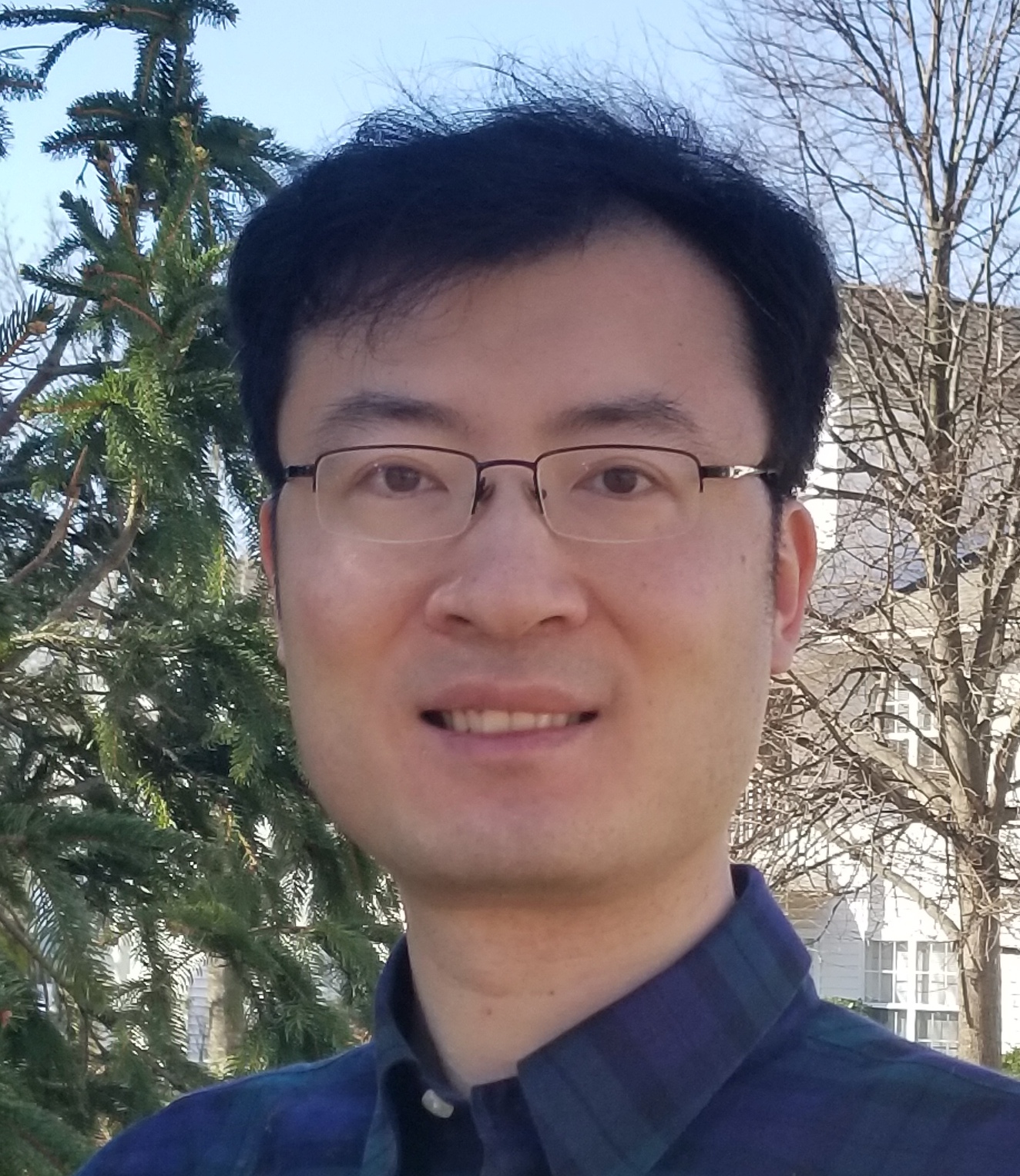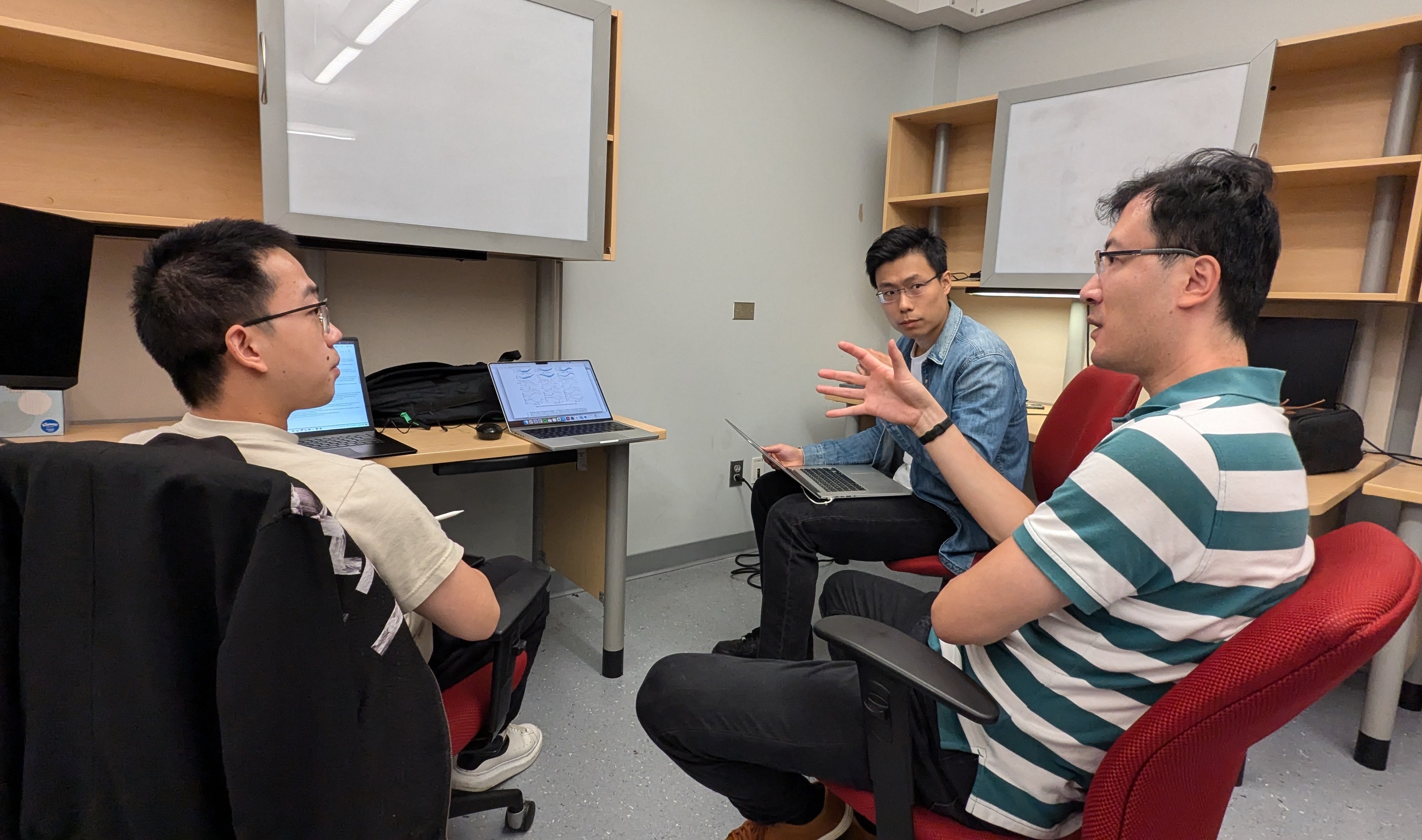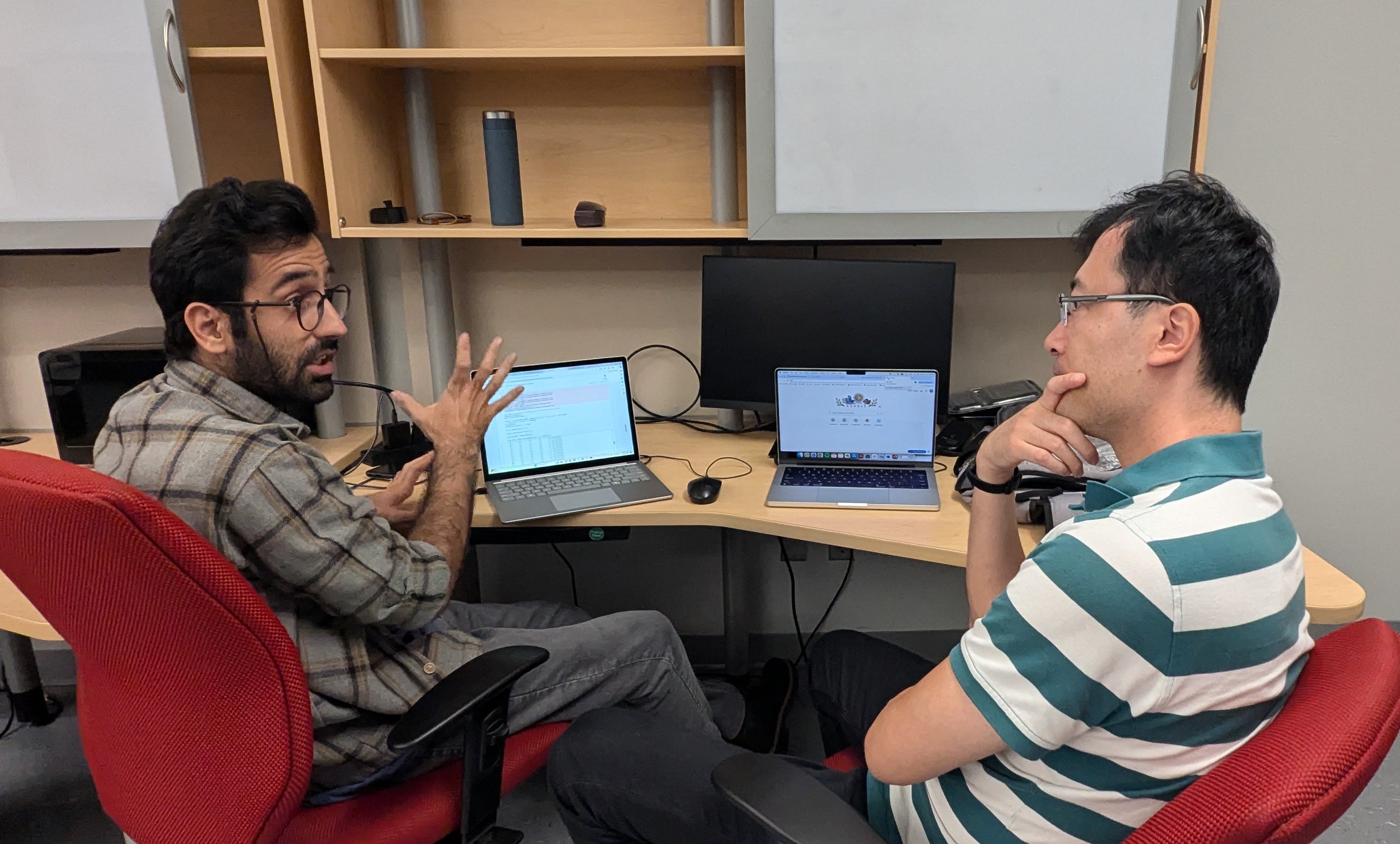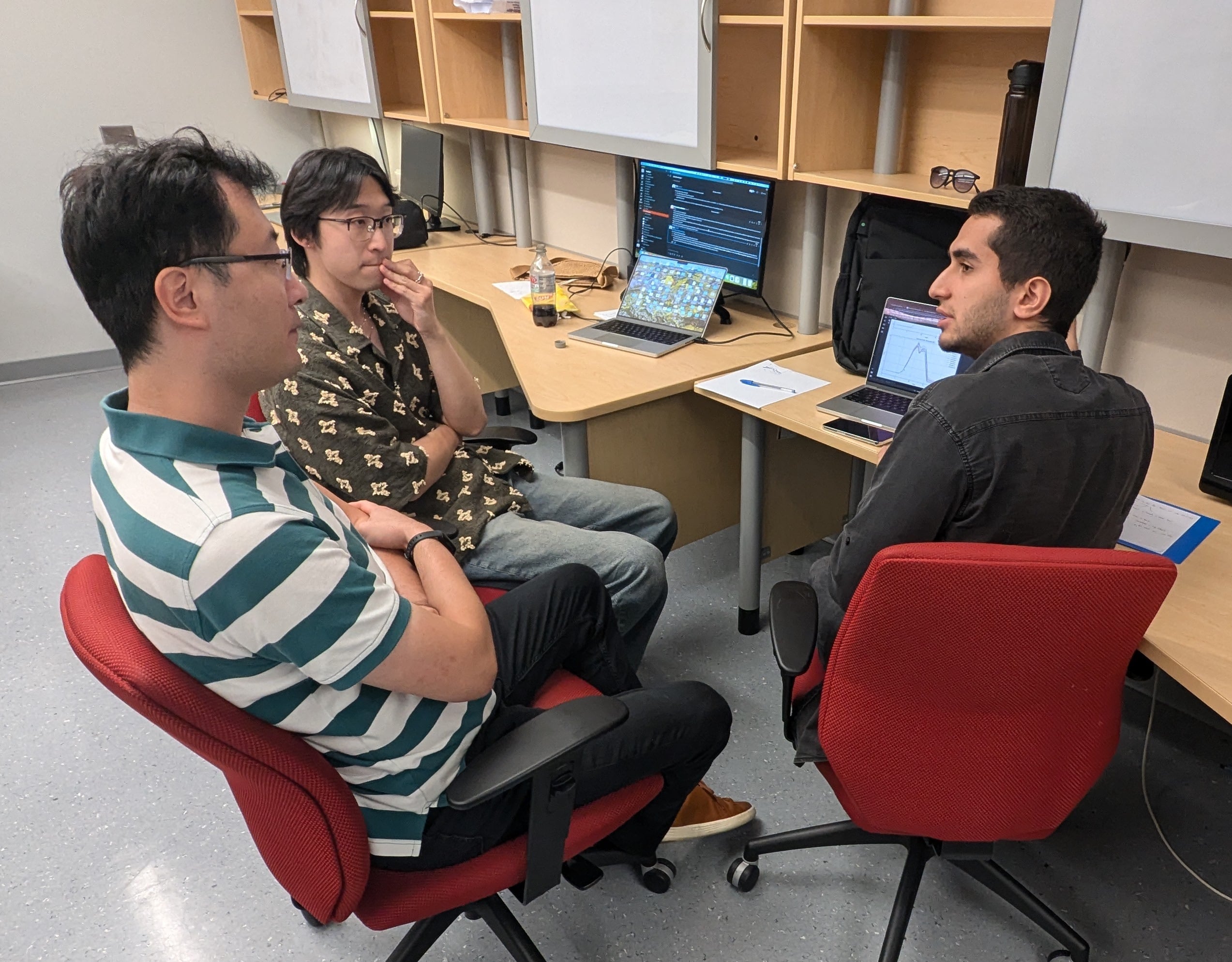Yue Zhao: Making Renewable Energy Practical
 |
| Professor Yue Zhao |
Renewable energy fascinates Professor Yue Zhao of the Department of Electrical and
Computer Engineering at Stony Brook University. Renewable energy plays a crucial role
in fighting climate change, one of the most pressing issues of our time, and working
in this field allows him to contribute directly to reducing carbon emissions and promoting
a sustainable future.
The technology behind renewable energy is becoming increasingly mature and practical.
Decades of innovations have transformed it from a niche area into a broadly viable
and competitive alternative to traditional energy sources. This ongoing evolution
keeps the field dynamic and full of opportunities for ground breaking research and
development.
The challenge of integrating renewable energies into power sytems is complex and intriguing. Achieving high reliability and efficiency of power system planning and operations with massive integration of wind and solar energies presents a plethora of problems from both technological and policy-making perspectives. This makes this field intellectually stimulating and rewarding for a researcher.
Professor Zhao has experience in three problem areas within renewable energy.
Machine learning for hi-fidelity monitoring and forecasting of distributed energy resources (DERs) and net loads.
In recent years, the power distribution systems have been experiencing transformative changes namely in the rapid and continuing growth of renewable energies, the explosive adoption of electric vehicles (EVs), and the growing availability of flexible demands. Facilitating massive integration of distributed energy resources (DERs) in the long run with reliability and economic efficiency requires hi-fidelity monitoring and forecasting of the distribution systems and DERs.
Zhao’s group employs a suite of machine learning algorithms to improve the monitoring and forecasting for DERs and net loads. The research is made feasible by the rapid penetration of advanced sensors in power systems. To unleash the full value of the complex data sets collected, Zhao and his group develop novel unsupervised and supervised machine learning algorithms to provide accurate prediction of the health conditions of solar assets, and accurate detection, estimation and forecast of power consumption and generation from end-use customers such as behind-the-meter solar, EVs, and net loads.
 |
| Professor Yue Zhao |
Optimal dispatch of flexible energy resources such as energy storage, demand response and EV fleets.
A main challenge of grid integration of renewable energies in a reliable and efficient manner is to address the intermittency of wind and solar generation which are heavily dependent upon weather. A key idea is to exploit the variety of energy resources with high flexibility. These include energy storage, demand response, and EV fleets. Notably, the models of these resources are often either quite complex or non-existent. To optimally dispatch such resources to best compensate for the intermittency of wind and solar, Zhao’s group develops novel data-driven models and reinforcement learning (RL) algorithms, including offline RL algorithms that rely only on existing data sets that are widely available.
Market design for harnessing renewable energies in power systems.
As renewable energies and DERs bring significantly higher uncertainties into power systems, a prominent question arises: How do we organize and efficiently operate with all these uncertain resources? Zhao’s research vision is to provide principled methods, not ad hoc solutions, that offer a sustainable and scalable path of integrating renewable energies and DERs into power systems in the long run. Zhao’s research designs market mechanisms to integrate renewable resources into power system operations to achieve three design goals: social efficiency, practicality, and fairness.
Unique Synergy and Practicality
What differentiates Zhao’s research is the unique synergy between machine learning (ML) and power systems. His work delves deeply into exploiting the distinct characteristics of energy problems for novel design of ML algorithms. Instead of wielding a hammer (machine learning) to find a nail (power system problems), his research takes the opposite direction. He starts by understanding the unique characteristics and specific challenges of power system problems, and then designs machine learning algorithms to specifically address the intricacies and needs from these problems.
In regard to market design for integrating renewable energies, his work is among the few in the field that successfully combines broad practicality with hard theoretical guarantees.
 |
| Professor Yue Zhao |
At the cornerstone of Zhao’s research is practicality. His projects and research topics are typically derived based on extensive interactions with practitioners in the energy industry. Collaborators from the industry have a real stake in his projects. By closely working with them and regularly hearing their perspectives, he can steer the directions of research exploration to have the most practical impact. For example, in his collaboration with Hydro Quebec on their plan of building an HVDC line from Quebec to New York City, his research derives the most economic and environmental benefits from this large infrastructure investment. Another example is the collaboration with Ecogy Energy, a solar developer based in Brooklyn, New York. The ML algorithms Zhao and his group developed for monitoring solar asset health are directly embedded in their solar asset management software.
Zhao’s research benefits society in significant ways. By improving the integration and management of renewable energies, it plays a crucial role in fighting climate change, contributing to a more sustainable and environmentally friendly future. It also aids in the industrial transformation towards greener energy solutions, fostering innovation and efficiency in the power sector. This transformation not only helps in reducing carbon footprints but also stimulates economic growth by creating new job opportunities in the energy and technology sectors.
Eureka!
For Zhao, the most important thing is to first understand the real problems in practice.
This understanding helps him to clearly distill the core issues and the conceptual
problems. In deeply analyzing the formulated research problems, he has had quite a
number of “Eureka” moments that lead to novel technical solutions with beautiful results.
 |
| Professor Yue Zhao |
Commonality and Practical Nature
These areas are intellectually stimulating and challenging, requiring deep analysis
and a thorough understanding of complex systems. They often involve learning from
massive amounts of real-world data, which provides invaluable insights and drives
major innovations.
Another aspect Zhao finds interesting about them is their practical nature, as they
address real-world problems with direct applications and impact. This practicality
involves numerous thought-provoking discussions with industrial practitioners, bridging
the gap between academic research and industry needs. This collaboration not only
enhances the relevance of the research
but also ensures that the solutions developed are both feasible and impactful.
Support
NSF, DOE, ONR, NYSERDA, Sunrise Wind, Hydro Quebec, Offshore Wind Training Institute
(OWTI), Stony Brook University.
All the developed technical solutions from Zhao and his group’s research have been
open-
sourced.
Benefits to Students
Students have numerous benefits by working on these projects. They engage in important
areas that impact society, such as combating climate change and supporting the transition
to renewable energy. This provides a sense of purpose and contribution to meaningful
global challenges.
Students tackle real-world problems with direct impact and applications, allowing them to see the tangible outcomes of their work. This practical experience is invaluable in preparing them for future careers in both academia and industry. These projects also provide an intellectually stimulating environment where students can apply both machine learning and energy systems knowledge. This multidisciplinary approach equips them with a diverse skill set that is highly sought after in the evolving job market, making them well-prepared for various professional opportunities.
The broad areas of Zhao’s research have offered ample examples for which the knowledge and techniques he teaches in his optimization class are used. The research that involves offshore wind energy, in particular, also helps him to develop a new course on energy markets for renewable energy integration, sponsored by OWTI.
Collaborators deeply involved in my research projects:
Ecogy Energy
National Grid
Orsted
Hydro Quebec
Current Ph.D. students:
Ce Xu
Kang Pu
Mian Jia
Zhangrong Gu
Reza Khalili
Mohammadreza Bakhtiari
Sakshi Sharma (co-advised with Prof. Devinder Mahajan)
Chengyi Nie (co-advised with Prof. Zhenhua Liu)
Graduated Ph.D. students:
Hossein Khazaei, Amazon
Jiaming Li, Meta
Sichen Zhong, Amazon
